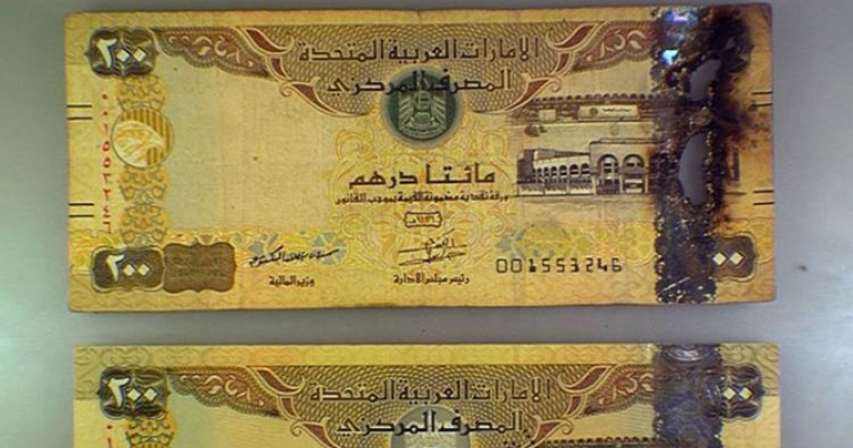COVID-19: Dubai resident used a microwave to disinfect his cash
- 4 years ago

Dubai Police urged residents to always disinfect their money in correct and proper manner
Police have warned residents not use innovative ways to disinfect their cash and to stick to disinfectant sprays and antiseptic wipes.
The advisory message was issued after a man attempted to disinfect his money by placing it in the microwave, who ultimately burned parts of the bank notes.
“Burnt bank notes is one of the cases that have emerged during COVID-19. Due to fear and panic, some members of the public take extreme efforts to disinfect their belongings, but they do so in innapropriate ways,” said Lt. Ahmed Mohammed Saleh Al Janahi from the Criminal Evidence and Criminology Department at Dubai Police, who was quoted in the Arabic daily Al Roeya.
بسبب وسواس #كورونا .. حرق نقوده بعد أن حاول تعقيمها في المايكرويف.#الشارقة_للأخبار #الإمارات pic.twitter.com/7ZGxArRTv1
— الشارقة للأخبار (@Sharjahnews) July 6, 2020
Al Janahi also advised the public to replace damaged bank notes directly at the bank, and not the police station.
According to the guidelines issued by the UAE Central Bank, bank notes should be sanitised and disinfected just like any other surface.
“The same precautionary measures as other surfaces should be applied to bank notes, such as cleaning it with antiseptics, or washing your hands after each use,” said the UAE Central Bank.
It also encouraged customers to use electronic forms of banking, which in turn reduces the need to use banknotes, visit banks and ATMs.
The UAE Central Bank’s confirmation on the safety of bank notes was made less than one week after the European Central Bank (ECB) said that tests carried out in collaboration with European laboratories showed the use of bank notes did not pose as a high risk for infection.
On the ECB’s website, executive board member Fabio Panetta said that the survival rate of coronaviruses is "10 to 100 higher" on a stainless steel surface, such as a door handle, than on euro banknotes in the first few hours after contamination.
“Other analyses indicate that it is much more difficult for a virus to be transferred from porous surfaces such as cotton banknotes than from smooth surfaces like plastic," said Panetta.
"Euro notes are printed on pure cotton-fibre paper, which helps make them resistant to wear and tear. Overall, banknotes do not represent a particularly significant risk of infection compared with other kinds of surface that people come into contact with in daily life," he added.
Comments